Neurorehabilitation (neurological Rehabilitation) — Early Rehabilitation in the Best Hospitals in the World
Treatment prices are regulated by national law of the corresponding countries, but can also include additional hospital coefficients. In order to receive the individual cost calculation, please send us the request and medical records.
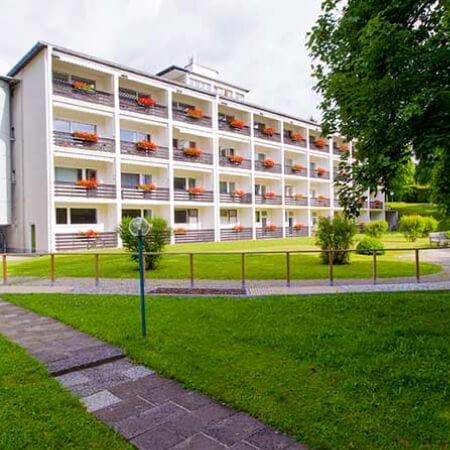
Department of Neurology and Neurological Rehabilitation
The Department of Neurology and Neurological Rehabilitation offers high quality emergency care and the full range of rehabilitation measures for patients with diseases of the nervous system. Particular attention is paid to early rehabilitation, which begins during the acute period of the disease, when the patient is in the intensive care unit. It is early rehabilitation that avoids the irreversible loss of vital functions of the nervous system. The department's specialists have excellent qualifications in the rehabilitation of stroke patients. The department's therapeutic options include various methods of physiotherapy, therapeutic exercise, occupational therapy, speech therapy, psychological and neuropsychological care. The rehabilitation program is developed individually for each patient after comprehensive diagnostics, which allows for assessing his neurological status and determining the goals of rehabilitation.
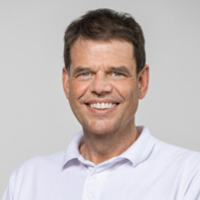
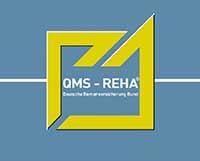

Department of Pediatric Neurology, Epileptology and Early Neurological Rehabilitation
The Department of Pediatric Neurology, Epileptology and Early Neurological Rehabilitation offers the full range of top-class medical services in the areas of its specialization. The department has been carrying out its successful clinical activities since 1974, and therefore it has a wealth of experience in the diagnostics and treatment of neurological disorders in children between the ages of 0 and 18 years. The focus is on the treatment of diseases of the brain and spinal cord, epilepsy, developmental delays and disorders, as well as on the treatment of muscle diseases. In addition, the competence of the department's specialists includes phase B early neurological rehabilitation for children after severe diseases and injuries of the brain and spinal cord, peripheral nervous system. Medical care is provided both on an inpatient and outpatient basis. The clinical work of the department's specialists is certified in accordance with DIN EN ISO standards. Thus, young patients and their parents can count on the effective treatment of neurological disorders in accordance with the very latest medical standards. Great attention is paid to making the child feel as comfortable as possible throughout the entire therapeutic process and not to be afraid of the upcoming treatment.
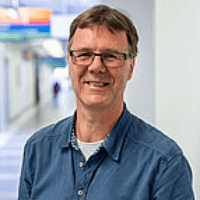



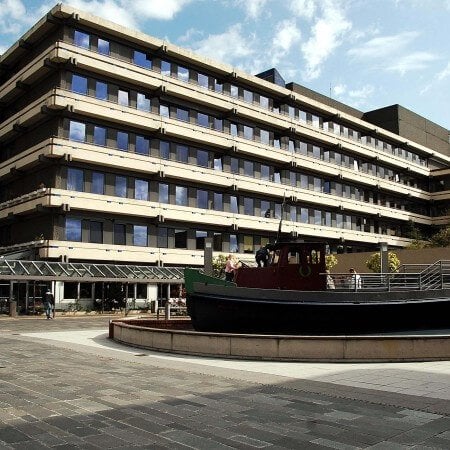
Department of Neurology and Early Neurological Rehabilitation
The Department of Neurology and Early Neurological Rehabilitation deals with the diagnosis and treatment of diseases of the central and peripheral nervous systems and muscular disorders. The main focuses of the department are diseases, such as a stroke, multiple sclerosis, Parkinson's disease, Alzheimer's disease and epilepsy, as well as herniated discs and spinal cord diseases.
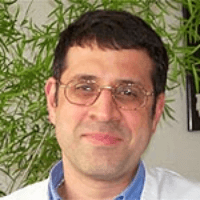

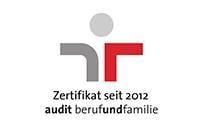
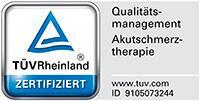
Early rehabilitation is the most important stage in a patient's recovery because it prevents disability and the need for long-term care. The earlier rehabilitation measures are initiated, the better the results. In developed countries, rehabilitation after injuries, surgery, and acute diseases begins immediately after hospitalization and medical care, even in the intensive care unit, and then continues in a neurological or neurosurgical inpatient clinic or rehabilitation center.
Content
- What is early neurological rehabilitation?
- Who may need early neurorehabilitation?
- What influences the choice of early neurorehabilitation methods?
- What rehabilitation methods are used abroad?
- Where can I undergo early rehabilitation and treatment abroad?
What is early neurological rehabilitation?
Neurorehabilitation consists of several phases denoted by Latin alphabet letters. Phases A and B are classified as early rehabilitation.
In phase A, rehabilitation takes place in the intensive care unit. It is carried out even in the absence of full contact with the patient.
In phase B, the person's condition is already stabilized. After hospitalization, the patient stays in a general patient room and then continues rehabilitation activities in a rehabilitation center.
The duration of early neurorehabilitation may vary from 1 to 2 months. Its duration is longer for patients with spinal injuries. After completing phase B, the rehabilitation process moves to phase C, which the person undergoes on an outpatient basis.
Who may need early neurorehabilitation?
Early neurological rehabilitation is required for all patients who:
- Have any neurological dysfunctions
- Have the potential for recovery
Early rehabilitation after hospitalization for neurological pathology is provided to patients whose structures of the central nervous system have been damaged as a result of injury, severe neurological disease, or surgery.
The most common indications for neurorehabilitation are stroke, spinal injury, or traumatic brain injury. Recovery is also required after meningitis, encephalitis, severe exacerbations of multiple sclerosis, and other brain diseases.
What influences the choice of early neurorehabilitation methods?
The set of rehabilitation measures is selected for each patient individually, taking into account a number of factors. Doctors take into account the following:
- The specific neurological dysfunctions
- The severity of these dysfunctions
- Causes of brain damage
- Rehabilitation potential
- The patient's condition, physical abilities, or comorbidities
- The patient's engagement, motivation, and rehabilitation outcome expectations
Neurological disorders are assessed using special scales. For example, the Barthel index characterizes motor disorders, and the Lindmark scale assesses mobility and sensitivity. The Scandinavian scale is used to assess motor functions, speech, spatial and temporal orientation, and self-awareness.
After the detection of neurological disorders and the assessment of their severity, doctors start rehabilitation measures aimed at eliminating specific disorders.
What rehabilitation methods are used abroad?
The most common problem is motor disorders. Both conventional and innovative approaches are used for the neurorehabilitation of patients abroad, including the following methods:
- Positional therapy
- Kinesiotherapy
- Electromyostimulation
- Proprioceptive stimulation
- Mechanical therapy
- Verticalization
- Exercise therapy
- Various physiotherapy options
- Transcranial magnetic stimulation
- Exercises on suspension systems
- Aquatic therapy
The best European rehabilitation centers offer advanced technologies, including advanced robot-assisted devices (exoskeletons and manipulators) and virtual reality technologies.
In addition to mobility, neurological diseases often affect other functions as well. Therefore, patients may need to restore memory, vision, balance, pelvic organ function, speech, etc. Various methods and technologies are used for their restoration, such as training on a stable platform, classes with a speech therapist-aphasiologist and neuropsychologist, eye exercises, and training of cognitive functions and pelvic muscles.
Rehabilitation often involves the use of auxiliary methods, such as drug therapy, botulinum toxin therapy, physiotherapy, massage, lymphatic drainage, orthotics, and other procedures. They help patients feel better, relieve symptoms, and increase the effectiveness of neurorehabilitation.
Where can I undergo early rehabilitation and treatment abroad?
Rehabilitation is important for restoring the functions of the human body, mobility, self-care abilities, regaining social activity, and domestic and professional skills. Moreover, neurorehabilitation serves as a prevention of complications. Patients undergoing comprehensive rehabilitation not only improve the quality of their lives but also their expectancy.
You can go to Europe for high-quality rehabilitation. After hospitalization, you will be examined, the degree of your neurological deficit will be assessed, and a personalized recovery program will be selected.
There are thousands of rehabilitation centers in Europe. Dozens of them are among the best in the world and are equipped with state-of-the-art technology.
If you want to undergo treatment abroad, undergo rehabilitation, or find out the cost of treatment, you can check prices and choose a clinic on the Booking Health website. On the website, you will find out not only the average price for rehabilitation services but also the exact prices for each day of rehabilitation in different foreign clinics.
When making an appointment through the Booking Health service, the cost of treatment will be lower for you. The reduction in prices is due to the absence of additional fees for foreign patients.
You are welcome to leave your request on our website to receive a consultation from medical tourism specialists. The Booking Health specialists will help you select the best clinic for early neurorehabilitation, depending on your diagnosis, make an appointment for hospitalization for your preferred dates, and take care of all the arrangements for your treatment abroad.
Authors:
The article was edited by medical experts, board certified doctors Dr. Nadezhda Ivanisova and Dr. Vadim Zhiliuk. For the treatment of the conditions referred to in the article, you must consult a doctor; the information in the article is not intended for self-medication!
Our editorial policy, which details our commitment to accuracy and transparency, is available here. Click this link to review our policies.
Sources:

